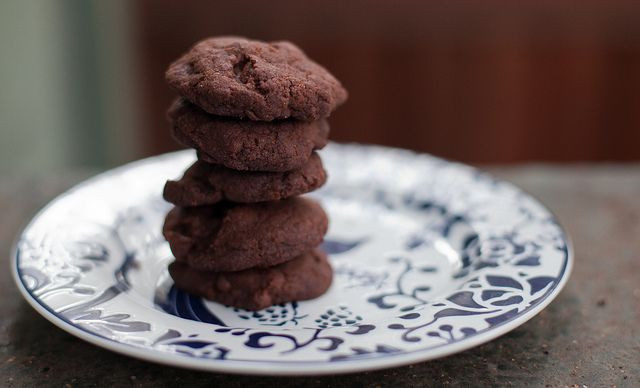How Imagination Influences BMI: Those Who Can Vividly Imagine A Smell Are More Likely To Be Overweight

The ability to imagine the smell of freshly baked bread or a bouquet of roses varies greatly from person to person. New research suggests this skill may influence our lives in a highly specific way. Overweight and obese adults are able to more vividly imagine odors, whether that be the scent of popcorn, oven-warmed cookies, or even pine trees, the study finds.
“These results raise the possibility that imagery ability may play a role in the heightened food cue reactivity observed in obese individuals,” the authors noted in their published abstract.
Researchers at Yale School of Medicine began their investigation with a very simple observation: People who are obese report more frequent food cravings than their lean peers. What if, the researchers theorized, people with higher body weights not only experienced more frequent cravings, but they also had a greater ability to imagine the scents and flavors of different luscious foods. Wouldn’t this intensify their desire and make it nearly impossible for them to resist temptation?
To test this hypothesis, the researchers designed an experiment based on Kavanagh's Elaborated Intrusion Theory of Desire. In a nutshell, the theory says that vivid mental images have the power to stimulate and maintain food cravings triggered by the thought, smell, and sight of food. First, 25 participants with a range of body mass indexes (BMI) from underweight to obese completed a series of questionnaires that asked them to imagine both visual and odor cues. After rating the vividness of their mental pictures based on these cues, the participants next completed a questionnaire measuring the strength of their cravings.
People with a higher BMI, the researchers discovered, reported a greater ability to vividly imagine both food and non-food odors. However, the same was not true of their visual abilities. High BMI people did not correlate to better than average skill in drawing mental images. Further analyzing the data, the researchers discovered imaginative olfactory abilities could even predict the BMI of each participant.
Next, the research team went back to the laboratory with 57 new participants and found the results of their initial experiment confirmed: A relationship exists between BMI and perceived ability to imagine odors, any odor whatsoever.
"These findings highlight the need for a more individualistic approach in identifying factors that may increase risk for weight gain," Dr. Barkha Patel, lead author and postdoc fellow, stated in a press release. What we can smell, even when it only occurs in our minds, we naturally want to taste.
Source: BP Patel, K Aschenbrenner, D Shamah, DM Small. Greater Perceived Ability to Form Vivid Mental Images in Individuals with High Compared to Low BMI. Annual Meeting of the SSBI. 2015.
Published by Medicaldaily.com



























